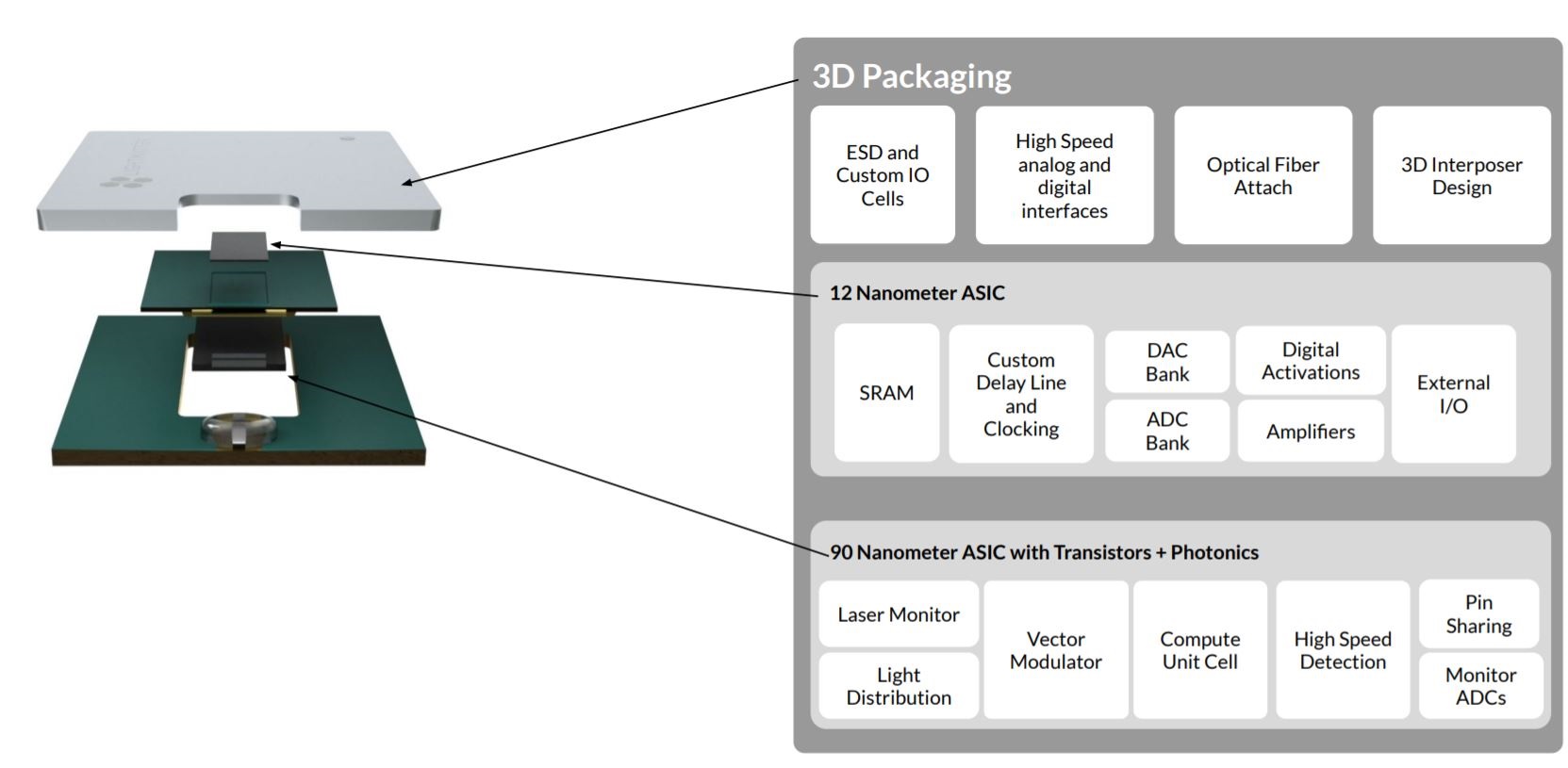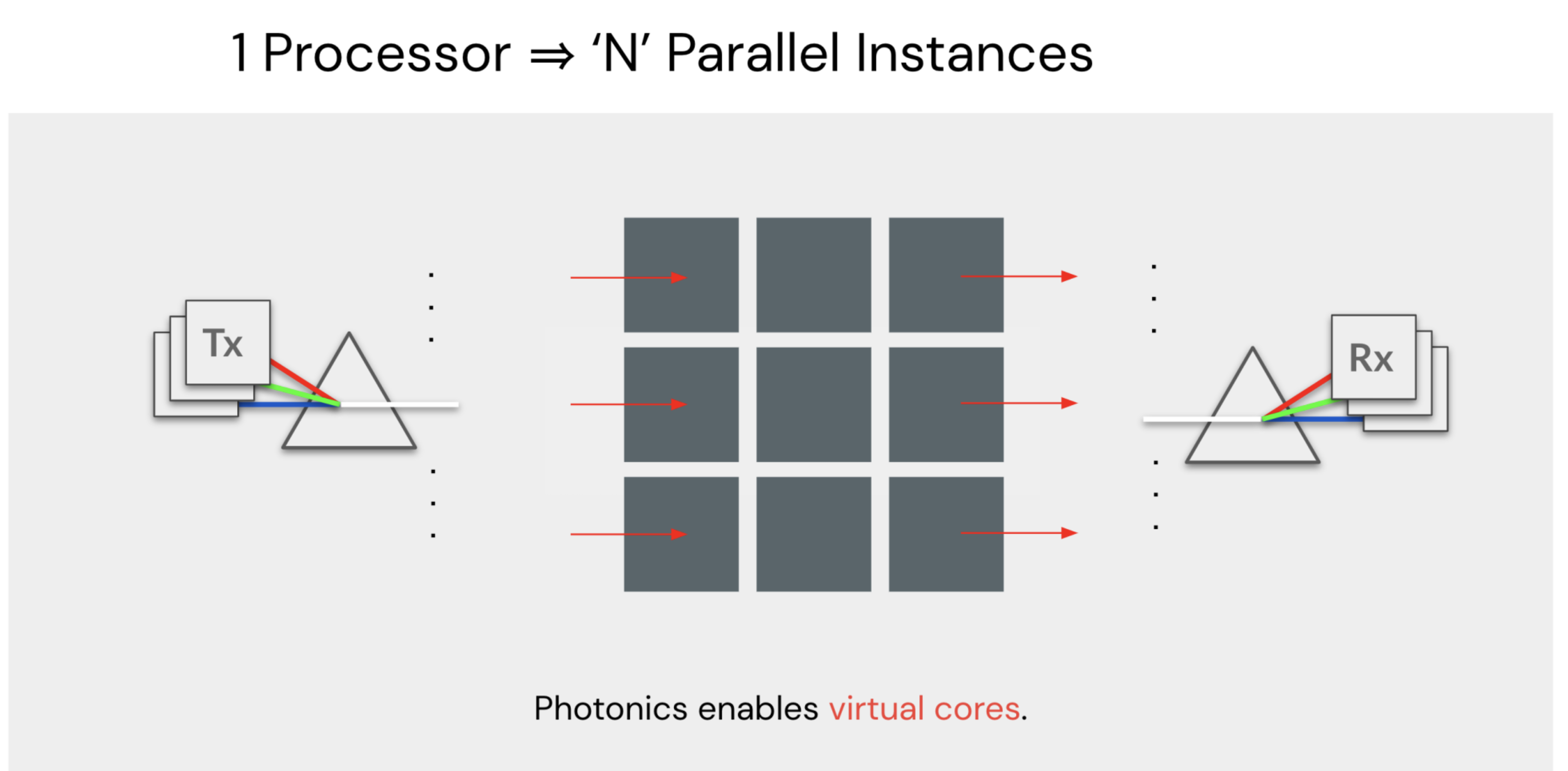Light-base AI chip, a new product developed by Lightmatter, is said to be specifically designed and perform well for AI programming. Lightmatter, a startup born at MIT, is betting that AI’s voracious hunger will spawn demand for a fundamentally different kind of computer chip—one that uses light to perform key calculations.
“Either we invent new kinds of computers to continue,” says Lightmatter CEO Nick Harris, “or AI slows down.”
Conventional computer chips work by using transistors to control the flow of electrons through a semiconductor. By reducing information to a series of 1s and 0s, these chips can perform a wide array of logical operations, and power complex software. Lightmatter’s chip, by contrast, is designed to perform only a specific kind of mathematical calculation that is critical to running powerful AI programs.


Images: Lightmatter module block diagram and light based chip
Harris showed WIRED the new chip at the company’s headquarters in Boston recently. It looked like a regular computer chip with several fiber optic wires snaking out of it. But the light-base AI chip performed calculations by splitting and mixing beams of light within tiny channels, measuring just nanometers. An underlying silicon chip orchestrates the functioning of the photonic part and also provides temporary memory storage.
Lightmatter plans to start shipping its first light-base AI chip, called Envise, later this year. It will ship server blades containing 16 chips that fit into conventional data centers. The company has raised $22 million from GV (formerly Google Ventures), Spark Capital, and Matrix Partners.
The company says its chip runs 1.5 to 10 times faster than a top-of-the-line Nvidia A100 AI chip, depending on the task. Running a natural language model called BERT, for example, Lightmatter says the light-base AI chip is five times faster than the Nvidia chip; it also consumes one-sixth of the power. Nvidia declined to comment.
----
Contact us via:
Email: sale@strade.asia
Tel: (+84) 84305 6868
Fax: (+84) 84305 6868


